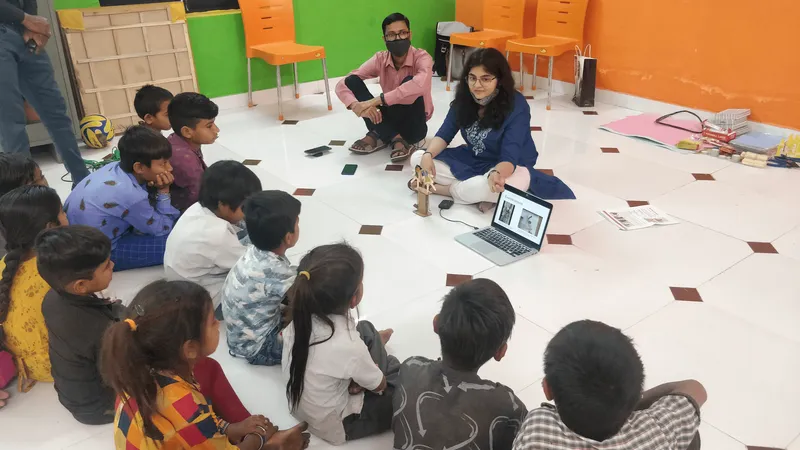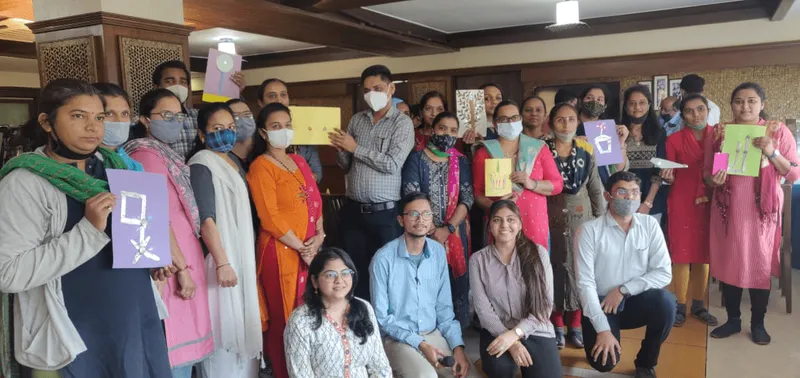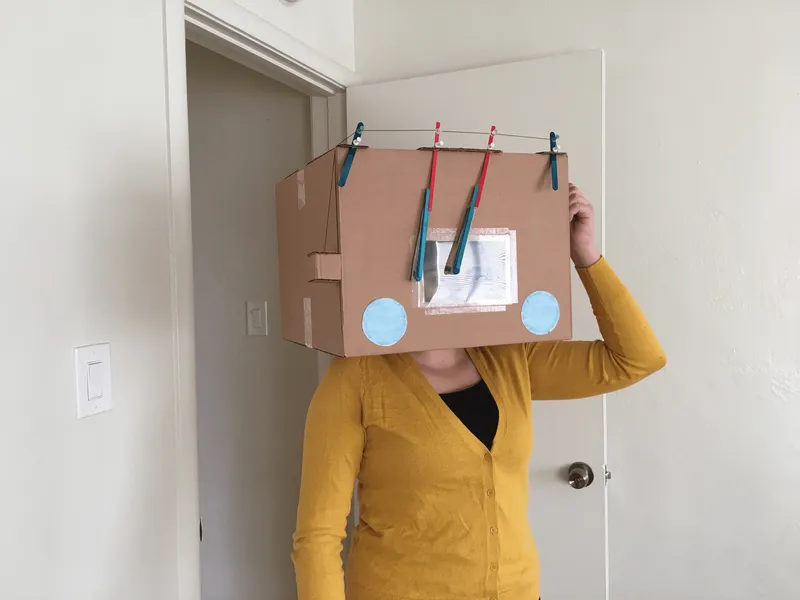This Toronto-based non-profit provides creative education to over 2000 children in rural India
Toronto-based non-profit organisation Unstructured Studio aims to provide children in rural India with creative education through its ZubHub platform.
India has over 146 million children enrolled in rural elementary schools, which often lack resources, network connectivity, etc. For this reason, most teachers only focus on completing the basic education as they, too, lack creative expression in their pedagogy.
As a result, these children are often devoid of opportunities that help them better their creativity. According to LinkedIn, the top skill for 2020 was defined as ‘Creativity’ among the top 15 skills that employers want.
“There are multiple reasons why children are missing these opportunities. Out of the 84 percent of primary schools in rural India, only 28 percent have access to computers, and 9 percent have an internet connection. Besides, only 18 percent of teachers have professional qualifications,” Srishti Sethi, Co-founder of Unstructured Studio, tells SocialStory.
Although this creates inequities in learning across the social divide, there is a high cost associated with participating in such learning experiences like STEM kits, special course enrolment, etc.
Enter — a Toronto, Canada-based non-profit organisation — which engages children from India's rural and remote communities in creative learning experiences.
Co-founded by Srishti and Suchakra Sharma in 2020, the non-profit developed a platform called ZubHub — a hub of creative hands-on projects and activities using low-cost materials for children and educators.
ZubHub
Srishti graduated with a Master’s degree from the Lifelong Kindergarten Research Group at the MIT Media Lab, which develops technologies, activities, and communities to engage people in creative learning experiences.
Srishti — who currently works for Wikipedia as a Senior Developer Advocate in San Francisco — joined hands with Suchakra, a self-employed computer scientist, to take forward the Unstructured Studio initiative, and build the ZubHub platform.
The free and open-source platform uses modern and fast web technologies — Django and React Native. It is accessible on the web and mobile devices and via WhatsApp and Interactive Voice Response (IVR) messages.

Unstructured Studio teaches children how to use creativity to innovate
“On ZubHub, children can join from anywhere in India and get inspired by our collection of ideas enlisted on our Kriti platform, a collection of low-cost tinkering and making activities for children, educators, and their peers' projects,” Suchakra explains.
He adds, “They can build with low-cost materials and tools available around them, and share their creations with others. There is no need for them to buy expensive STEM kits or enrol in any specific subscriptions.”
Some of ZubHub’s primary features include creator portfolios, activity ideas, featured projects, collaborative project making, etc.
The platform’s design accommodates local cultures, contexts, and concerns and covers solution-driven activity themes to encourage children to address targeted problems in their communities.
Besides, the platform can be made available "offline" in low-connectivity areas or as a "customised version" to meet the needs of educational institutions.
Impact and reach
Unstructured Studios works with educators, children, and local partners from remote areas in Gujarat. The team of eight members help run the platform and connect with local NGOs and educators.
“We use WhatsApp and other collaboration tools to interact with our community and work with a dedicated staff member who helps with on-ground facilitation and reports feedback on the activities,” Srishti explains.
She adds that the on-ground team does research to understand the impact of the programmes and produces reports detailing methodologies, lessons learned, and ideas for the next steps.
While the limited access to creative learning opportunities stands a challenge in the underserved communities, ZubHub provides equitable access and engages children in hands-on, imaginative, and playful STEAM-rich learning experiences.

An offline event by Unstructured Studio for educators
Some of the innovations include Robo heads, music from everyday objects, ink from flowers and leaves, and paper circuits, among others. These ‘how-to’ projects can be found on the non-profit’s Kriti page, while the projects can be uploaded on the ZubHub platform.
On Kriti, the activities are available as videos and PDFs, where the educators can quickly download the PDFs if necessary and make them available to the children.
Often, the students also share their creative innovations on ZubHub, which can inspire other children.
Unstructured Studio has tied up with Learningwala, operated by Mihir Pathak, which has helped the team build on-ground partnerships and carry forward the work.
Besides, other NGOs and schools, including Moinee Foundation, Agastya Foundation, Sai’s Angel Foundation, Happy Faces School, Uniqyou International School, and Shishukunj, are using ZubHub to disperse this creative education.
“Our operations are in rural and remote communities in India, specifically in Bhuj, Ahmedabad, Idar, and Vadodara. We are currently serving 2000 students and 40 educators in India,” says Srishti.
Challenges
Unstructured Studios has developed its platform, got volunteering services, and is recruiting a few interns with its bootstrapped capital. However, the funding has been a challenge for further operations.
At present, it is looking for donations in order to expand to more places and reach more people, Suchakra says.

A robot head, one of the projects listed on Kriti.
“We have observed some of the children who we have worked with are in areas with limited internet connectivity and are relying on just one device. This can be a big challenge for us in the future,” says Srishti.
The non-profit wants to extensively make this platform available for offline use so it can be set up in libraries and community centres in rural areas.
The road ahead
“We plan to expand to other areas in India in the coming years. Within one year, we plan to serve 60,000 students and 250 educators, and in the next five years, we expect to see exponential growth since our platform would have matured, and we would have secured sufficient funding to scale our operations,” Srishti shares.
Unstructured Studio hopes to serve around five million students, 10,000 educators, and on-ground collaborations with 100 education providers and schools across India in the next five years.
“Through our work, we hypothesize that children will develop essential 4Cs of the 21st century — Creativity, Critical Thinking, Communication, and Collaboration — which will help them address the pressing problems of society and excel in the future workforce. We plan to look into frameworks to assess creativity and apply them to inform our future work better,” Suchakra signs off.
Edited by Suman Singh








